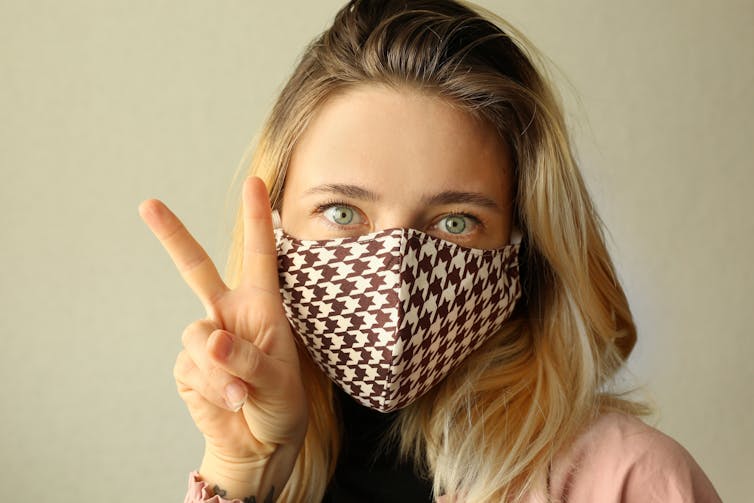Face covers are presently a legitimate necessity in numerous open spaces far and wide. Yet, even before they got mandatory, covers were messing litter up ashore and adrift.
One February sea shore clean in Hong Kong discovered 70 covers along 100 meters of shoreline, with 30 all the more seeming seven days after the fact. In the Mediterranean, covers have allegedly been seen gliding like jellyfish.
Regardless of a large number of individuals being advised to utilize face covers, little direction has been given on the most proficient method to discard or reuse them securely. Furthermore, as countries lift lockdown limitations, billions of covers will be required every month universally. Without better removal rehearses, an ecological calamity is approaching.
Most of veils are fabricated from dependable plastic materials, and whenever disposed of can continue in nature for a considerable length of time to many years. This implies they can have various effects on nature and individuals.
Dangerous to individuals and creatures :
At first, disposed of covers may hazard spreading coronavirus to squander authorities, litter pickers, or individuals from the open who previously go over the litter. We realize that in specific conditions, the infection can make due on a plastic careful veil for seven days.
Over the medium to long haul, creatures and plants are likewise influenced. Through its sheer mass, plastic waste can cover situations and separate biological systems. A few creatures likewise can't differentiate between plastic things and their prey, in this manner stifling on bits of litter.
Regardless of whether they don't stifle, creatures can get malnourished as the materials top off their stomachs however give no supplements. Littler creatures may likewise get entrapped in the versatile inside the covers or inside gloves as they break separated.
Plastics separate into littler pieces after some time, and the more extended litter is in the earth, the more it will break down. Plastics first separate into microplastics and in the long run into considerably littler nanoplastics. These minuscule particles and filaments are regularly extensive polymers that can gather in evolved ways of life. Only one veil can deliver a great many particles, each with the possibility to likewise convey synthetic substances and microscopic organisms up the evolved way of life and conceivably even into people.
Littered regions additionally will in general empower further littering, exacerbating the issue.
What you ought to do :
In March, the World Health Organization assessed that 89 million extra expendable veils were required all around every month in clinical settings to battle COVID-19. What's more, an ongoing working paper by the Plastic Waste Innovation Hub at University College London has put the current residential interest for the UK at 24.7 billion covers every year. Notwithstanding, the interest for local face veils in the UK drops significantly – to around 136 million per year – if just reusable covers are utilized.
Be that as it may, even with reusable veils, their particular plan and how you decide to clean them has any kind of effect. The University College London group inspected the assembling, use, and removal of covers that were dispensable, reusable, and reusable with expendable channels, to compute their general natural effect. They discovered machine washing reusable covers without any channels had the most minimal effect longer than a year.

Maybe shockingly, the working paper evaluates that hand washing reusable covers with dispensable channels had the most elevated ecological effect generally – higher even than utilizing completely expendable veils.
In light of the entirety of this, we should find a way to decrease the effect of wearing a face veil:
Utilize reusable covers without expendable channels. Machine wash them consistently adhering to the directions for the texture.
Attempt to convey an extra so if something turns out badly with the one you're wearing you don't have to utilize or purchase a dispensable veil.
On the off chance that you do need to utilize a dispensable cover, take it home (possibly in a pack on the off chance that you need to take it off) and afterward set it on the right track into a canister with a top. On the off chance that this is absurd, place it in an appropriate open receptacle.
Try not to place expendable veils in the reusing. They can get trapped in pro reusing gear and be a likely biohazard to squander laborers.
Whatever you do, don't litter them!









